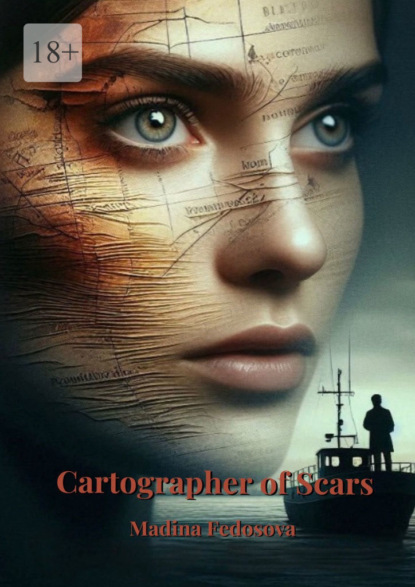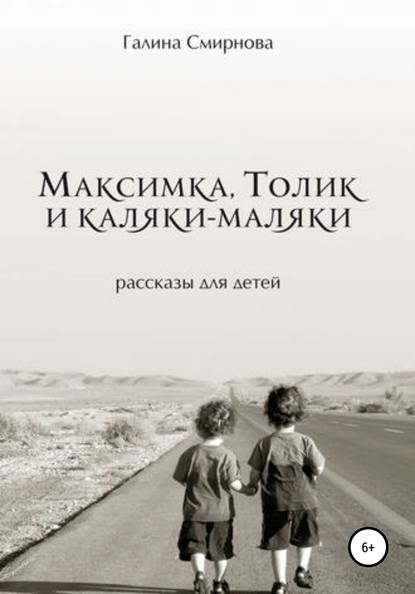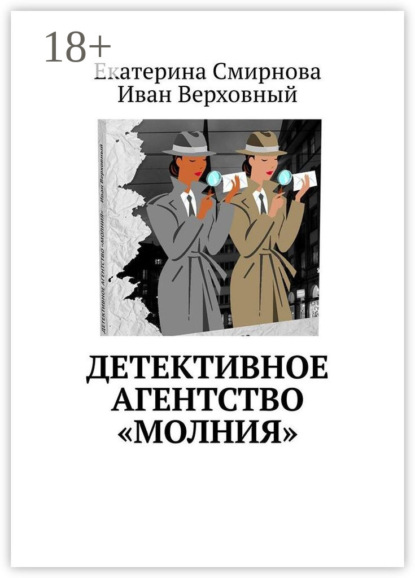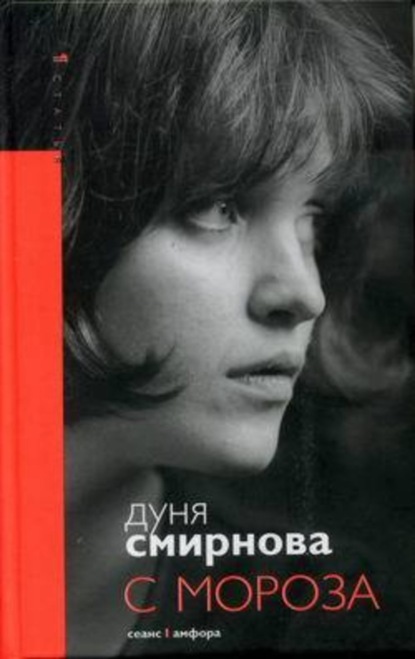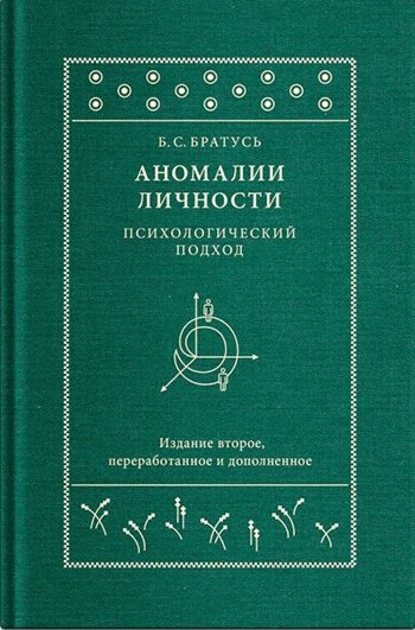- -
- 100%
- +

© Madina Fedosova, 2025
ISBN 978-5-0068-0721-1
Created with Ridero smart publishing system
Author’s Preface
Dear Reader,
This book was born from silence. From the silence that remains after war. From the silence in which only the echoes of pain, fear, and loss can be heard.
I write these lines in an era where conflicts rage in different corners of the world, blood is shed, and human destinies are shattered under the weight of violence. My heart aches for those who suffer, who lose loved ones, who are forced to leave their homes. I express my deepest respect and support to all who, despite everything, retain their humanity and faith in a better future.
“The Cartographer of Scars” is not a dispatch from the front lines. It is not a chronicle of military operations. It is a story about the aftermath of war, about those who survived it but were left with unhealed wounds in their souls. It is about how the past influences the present, how past traumas haunt us, and how one can find a path to healing.
At the heart of this story is Miloš, an old cartographer who draws maps of the scars on his patients’ bodies. Each scar is not just a physical mark but a symbol of pain endured, a sign of a story that must be told.
Beside him is Aliya, a young psychologist trying to help war veterans find peace within themselves. She searches for new methods of treatment, new approaches to understanding the human psyche.
Together, they embark on a journey through the labyrinths of human memory to find answers to the most difficult questions: How does one live after war? How does one forgive oneself and others? How does one find meaning in suffering?
This book is not an attempt to assign blame or to justify evil. It is an attempt to understand what happens to a person when they face the horrors of war. It is a call for compassion, for mercy, for humanity.
I hope this story will touch your hearts, make you think about the price of war, and about how important it is to cherish peace.
I dedicate this book to all the victims of war, to all who seek healing, to all who believe in a better future.
With hope for peace,
Madina Fedosova
Prologue
In the sterile operating room, where hope usually triumphed, today death reigned. Salty sweat stung Miloš’s eyes, mingling with the red haze clouding his mind. Time seemed to have coiled into a tight spring, ready to snap at any moment and leave nothing but emptiness.
Miloš bent over the body that was once full of life, now mangled and bloodied. It was Emir, just a boy – nineteen years old, with eyes the color of the Bosnian sky, who dreamed of becoming a teacher. Now, on the operating table, lay only a broken doll, devoid of a soul yet desperately clinging to the fading thread of life.
The bullet, like an evil fate, had torn through his chest, shattering a rib and mercilessly severing an artery. Blood, thick and hot, gushed out, drenching Miloš’s hands, slicking the cold metal of the instruments, turning everything into a crimson nightmare. He worked quickly, with movements honed to automation by years of practice, but today, despite all efforts, victory was slipping away.
“Hang on, Emir, hang on, boy,” Miloš whispered, his voice trembling with fatigue and helplessness. He knew Emir could no longer hear him, that his consciousness had long left this world, but he kept repeating the words like an incantation, a prayer offered into the void.
He remembered Emir’s eyes, full of fear and plea, when they had brought him in hours earlier. He had promised him everything would be alright, that he would save him. But now, looking at his motionless face, Miloš understood he would not be able to keep that promise.
Suddenly, as if by some malicious design, Emir’s heart fluttered, beat irregularly, and then – stopped. The silence that fell in the operating room was deafening. Miloš frantically tried CPR, trying to breathe life into the lifeless body, but it was all in vain. Emir was gone.
Miloš slumped back in his chair, feeling an icy wave of despair wash over him. He looked at his hands, trembling and smeared with Emir’s blood. These hands, meant to save lives, had been powerless in the face of death. These hands, meant to bring healing, had brought only pain and loss.
His gaze swept over Emir’s body. Every scar, every wound, every cut left by surgical instruments told its own story – a story of war, of violence, of shattered destinies. On this young body, which had just begun to live, the signs of death were already inscribed.
Who would read these stories now? Who would learn of Emir’s dreams and hopes? Who would remember his name?
Suddenly, like a revelation, a thought struck Miloš. He reached for the scalpel lying on the table beside him. His hand shook, but he knew with certainty what he had to do. He drew the scalpel’s edge across his own arm, leaving a deep cut on his skin. Pain shot through his body, but he paid it no mind.
This scar would remain with him forever. It would remind him of Emir, of his unfulfilled dream, of his lost life. It would remind him of all those he had failed to save, of all those whose stories remained untold.
It would become his personal map of the war.
Part One
The First Scar
Chapter 1
A Touch of Pain
Aliya adjusted her medical mask as if donning a shield, preparing for a battle – not against physical ailments, but against the invisible wounds that, she knew, ran much deeper. The mask, this silent witness to her work, couldn’t keep out the pungent smell of bleach mixed with the scent of hope and despair that hung in the walls of the rehabilitation center. Outside the window, smudged by autumn rain, drifted the familiar Sarajevo landscape: an endless gray, like a photograph faded with time. The rain, that stubborn city dweller, insistently drummed against the windowsill, beating a steady rhythm – like the heart of the city, still beating even in the hardest of times.
She glanced at the clock. 9:57. Three minutes. Three short, yet eternal minutes before she would enter that room again, where souls stood frozen, awaiting her help. Aliya took a deep breath, trying to quell her anxiety. She remembered the words of an old, wise doctor who always said: “A doctor is not just a profession, it’s a calling. A calling to see pain, to have compassion, but not to drown in it.”
She recalled yesterday’s session with Safiya, who had lost her entire family during the siege. “Doctor,” Safiya had said, “sometimes I feel like I’m going crazy. The war took everything from me, even hope.” Aliya had remained silent then, searching for the right words. What words could restore hope to someone who had lost everything most dear?
Aliya knew that guilt was like a poison, eating away from within. It was like barbed wire, entangling the mind, preventing any move forward. As a wise woman who had survived the war once told her: “Scars remain not only on the body but also on the soul. But the soul, unlike the body, is capable of healing. One just needs to find the right path.”
And so, at exactly 9:59, Aliya opened the door and stepped into the room. Eight people – eight broken lives, eight stories told through eyes and silence. Emir, a young man who had lost a leg, stared at the floor as if trying to find his lost balance there. Safiya, still wrapped in a black headscarf, gazed out the window with unseeing eyes, as if hoping to see her children there. Josip, an old soldier, sat motionless, like a granite monument, silently harboring all the horrors of war.
Aliya took a deep breath, trying to hide the tremor in her voice. She remembered her mentor’s words: “Be a light, Aliya. Even a small candle can dispel the darkness.”
“Good morning,” she said, trying to make her voice sound confident and warm. “I’m glad to see you.”
In response – silence. Only heavy sighs and barely perceptible movements.
“Today we will talk about guilt,” Aliya began, feeling everything tighten inside her. “About how to learn to forgive yourself. As a wise man once said: ‘Forgiveness is not about being released from the past; it is about being released from its power over you.’”
At that moment, the door creaked softly, and Samira, a nurse with a perpetually worried face, peeked in.
“Aliya,” Samira whispered, “Dr. Hasan needs to see you urgently.”
What happened? Everything inside her went cold.
“Okay, I’ll be right there,” Aliya replied. Casting a glance at her patients, she felt that something important was about to happen.
Stepping out of the room, Aliya asked:
“What is it, Samira?”
“Dr. Hasan wants you to speak with a new patient,” Samira stammered. “He thinks he needs your help.”
“Who is it?” Aliya asked anxiously.
“Miloš… The Cartographer of Scars.”
Aliya’s eyebrows shot up in surprise. The Cartographer of Scars? The strange, reclusive old man about whom legends circulated.
“Dr. Hasan thinks he might be able to help this patient,” Samira explained. “But he needs your help to guide him… to steer him a little.”
She nodded:
“Alright, I’ll talk to Dr. Hasan.”
Aliya lingered outside Dr. Hasan’s office door as if before the entrance to a sacred temple. Her heart, like a trapped bird, fluttered somewhere in her throat. She knew that behind this door awaited not just a conversation, but something that could change her life. Dr. Hasan was more than just the chief physician to Aliya; he was a wise mentor who saw in her something she herself had not yet noticed. He was one of the few who had survived the war, lost his family, but had not allowed the darkness to consume him.
Aliya knocked – three short, confident raps. “Come in,” replied Hasan’s quiet but strong voice.
Hasan’s office resembled an old bookstore – tall shelves crammed with books, framed photographs, souvenirs from various countries he had visited while working with “Doctors Without Borders.” And the smell – the smell of old paper, medicine, and something subtly homely.
Hasan sat at his desk, buried in a mountain of papers. His face, usually bright and welcoming, now bore a shadow of worry. War, like a ruthless sculptor, had left its marks on his face – deep wrinkles, sad eyes, gray in his hair. But even through these traces, kindness and wisdom shone through.
“Aliya, glad you stopped by,” Hasan said, rising from his desk. His movements were slow but confident. “Thank you for always responding to my requests.”
“Doctor, is something wrong?” Aliya asked, feeling her anxiety grow.
“We have a new patient, Aliya,” Hasan replied with a heavy sigh. “Ahmed.”
Aliya frowned. The center already had more patients than they could handle. Each one needed attention and care.
“Doctor, you know I’m overloaded,” Aliya said, trying to speak softly. “How can I help?”
“The thing is, Ahmed’s case… is special,” Hasan answered, sitting back down. He picked up a pencil and began nervously twisting it in his fingers. “He’s closed himself off, doesn’t speak, refuses food. We’ve tried every method, but he doesn’t respond. It’s as if he’s buried himself alive.”
Aliya recalled an article she had recently read about psychological aid for war veterans. It mentioned that the most difficult was “petrification syndrome” – a state where a person completely disconnects from the external world, loses interest in life, and stops experiencing emotions.
“And you think I can help him?” Aliya asked, feeling doubtful.
“I believe in you, Aliya,” Hasan answered, looking her straight in the eye. “You have a way with people, you see what is hidden from other eyes. You know how to listen with your heart, and that is the most important thing. You know what they say: ‘The heart sees what the eyes cannot.’”
Aliya felt embarrassed by such high praise. She knew Hasan saw potential in her that she herself had not yet uncovered.
“But there’s something else,” Hasan continued, lowering his voice and leaning forward. “I want you to work with Miloš.”
“With the Cartographer of Scars?” Aliya was surprised, her voice rising involuntarily.
“Yes, with him,” Hasan replied. “I know people say all sorts of things about him. That he’s strange, unsociable, even mad. But I am sure there’s a spark of the divine in him, that he possesses some special gift.”
Aliya remembered the rumors about Miloš. They said he lived on a barge, drew some kind of maps, talked to the scars on veterans’ bodies.
“What does he do?” Aliya asked. “Some kind of shamanism?”
Hasan smiled.
“No, Aliya, he is not a shaman,” Hasan answered. “He is an artist. He sees in scars not just ugly marks, but a story, a tragedy, pain. He tries to capture that story on paper, to create a map that will help a person comprehend their past and move forward.”
Aliya was silent, trying to digest what she had heard. It sounded strange, unusual, but at the same time… intriguing.
“I want you to work together with Miloš,” Hasan continued. “I want you to help him understand Ahmed, to guide him if needed. I believe that together you can break through this wall that separates Ahmed from the world.”
Aliya thought it over. She understood it wouldn’t be easy. Miloš was a man out of this world, requiring a special approach. But on the other hand, it was a chance to try something new, to step beyond the usual treatment methods.
“Alright, Doctor,” said Aliya, feeling a spark of curiosity ignite in her heart. “I agree.”
“Thank you, Aliya,” Hasan replied, leaning back in his chair with relief. “I knew I could count on you.”
He stood up and walked to the window, looking out at the gray Sarajevo landscape.
“War leaves scars, Aliya,” he said quietly. “But our task is to help people find the strength to live on, to not let those scars destroy their lives.”
Aliya walked over to Hasan and placed a hand on his shoulder.
“We will do everything in our power, Doctor,” she said.
Hasan looked at her and smiled. In his eyes, Aliya saw pain, weariness, but also hope.
“I know you will, Aliya,” he said. “I believe in you.”
Aliya nodded and left the office, feeling a resolve growing within her.
Chapter 2
The Taste of Youth, the Scent of Hope
1988. Sarajevo. The summer was unusually hot. It seemed the sun had decided to squeeze all the juice out of the city. The scorching asphalt melted underfoot like soft plasticine, forcing the few pedestrians to hide in the narrow strips of shade cast by the old houses. The evening breeze, which usually brought relief, this time only whipped dust and the dry smell of heated earth through the city.
Sarajevo lived in anticipation – the Winter Olympics were just six years away, and the city was preparing to welcome guests from all over the world. The authorities were building new hotels, repairing roads, and decorating the streets with flowers and flags. Everyone hoped the Olympics would be a new beginning for Sarajevo, that it would show the world its beauty and hospitality, that it would dispel the gloomy shadows of the past and open the way to a bright future.
Miloš remembered how in 1984, when Sarajevo hosted the Winter Olympics, he was just a boy. He remembered the joy that filled the city, the smiles on people’s faces, the flags of different countries fluttering in the wind. He remembered how he and his father went to watch the hockey games and cheered for the Soviet team. “The Olympics are a celebration of peace and friendship,” his father had told him then. And Miloš had believed him.
He stood on the threshold of the Medical Institute, clutching a brand-new student ID in his sweaty palm. His heart pounded in his chest like a trapped bird ready to break free. “Well, that’s it, Miloš,” he said to himself, “now you’re a student. Now you’re a future doctor. Now you’re one of those who will save lives.”
He remembered the conversation with his mother the night before. She had hugged him and said: “Son, be honest, be kind, be fair. And remember, the most important thing is to love people.”
And then he heard the voice of his friend Ivan:
“Hey, Miloš! What are you stuck here for? Scared or something?”
Miloš turned and saw Ivan walking towards him with a broad smile on his face. Ivan was a tall, lanky guy with an open gaze and kind eyes.
“No,” Miloš replied, “just thinking about the future.”
“What future?” Ivan asked, coming up and clapping him on the shoulder. “About how you’re going to save the world?”
“Well, something like that,” Miloš answered, smiling.
“Come on,” Ivan said. “Saving the world is for politicians. We’ll just be treating people.”
“That’s important too,” Miloš replied.
“Of course it is,” Ivan agreed. “But the main thing is to earn good money to buy a nice car and a beautiful wife.”
“You’re always on about the same thing,” Miloš said, laughing.
“So what?” Ivan retorted. “Am I wrong?”
“Maybe you’re right,” Miloš answered. “But for me, the main thing is to help people.”
“Well, help then,” Ivan said. “And I’ll go meet some girls.”
And Ivan, winking at Miloš, headed towards a group of female students standing nearby.
Miloš watched him go and shook his head. Ivan was always like that – cheerful, sociable, amorous. He knew how to get along with everyone and enjoy life.
Miloš was different – more serious, thoughtful, dreamy. He loved to read books, ponder the meaning of life, make plans for the future.
But they were friends, and they respected each other.
Miloš took a deep breath and stepped into the institute building. “Well,” he thought, “let’s see what awaits me in this new world.”
The square in front of the institute was bustling with life, like a boiling cauldron. Students dressed in bright colors, like exotic butterflies after a long winter, fluttered around, creating a colorful, noisy kaleidoscope. Laughter rang in the air like little bells, interrupting snippets of conversation. Someone was passionately arguing about the upcoming lecture by Professor Jovanović, a legend of anatomy, who could talk for hours about the structure of the human body without missing a beat. “They say he has an anatomy textbook instead of a heart,” someone joked, causing an explosion of laughter. Someone was reading a book, immersed in the world of knowledge like a pearl diver in the depths of the ocean. And some just stood arm in arm, enjoying the last minutes of summer warmth and anticipating the start of a new life.
Miloš felt both lost and incredibly happy in this raging sea of youth. He had come to Sarajevo from a small mountain village where life flowed slowly and steadily. Here everything moved at a frantic pace, as if someone had pressed the “fast forward” button. He had dreamed of this day since childhood, since the moment he read a worn-out book about Florence Nightingale, the English nurse who dedicated her life to helping wounded soldiers during the Crimean War. He was struck by her selflessness, her mercy, her faith that even in the most terrible conditions, there was a place for compassion and love. “Mercy is the compass that points the right way in any storm,” he thought, remembering words from the book. But at that moment, it seemed to him that there was no storm in this city, and there wouldn’t be. There would only be light.
He remembered how once, as a boy, he had asked his grandfather, an old paramedic: “Grandad, why did you become a doctor?” His grandfather, puffing on his pipe, had answered: “You see, Miloš, life is like a river. It carries some on its waves, and drowns others. A doctor is someone who extends a hand to those who are drowning.”
Even as a boy, when other kids were kicking a ball in the yard or reading comics, Miloš spent his time in the village library, devouring books about doctors – Hippocrates, the father of medicine, whose principles of healing are still relevant today; Avicenna, the Persian genius who created the “Canon of Medicine,” which was the medical bible for centuries; Nikolai Pirogov, the Russian surgeon who first used anesthesia in field conditions and created an atlas of topographic anatomy. He was fascinated not only by the descriptions of complex operations but also by the stories of the selflessness and heroism of doctors who, risking their lives, saved people during epidemics and wars.
“Can you imagine, Grandad,” he once said, “Pirogov assisted himself during operations! It’s incredible!”
He dreamed of becoming just like them – brave, smart, devoted to his work. He wanted to save lives, ease suffering, give hope to those who had lost it.
“A doctor is not just a craft, Miloš, it’s the art of compassion,” his grandfather, the old paramedic who treated people in a distant mountain village hours from the nearest hospital, loved to say. His grandfather knew the value of medical care, knew that sometimes a kind word said at the right time could heal better than any medicine.
His parents – simple workers from the local sawmill – were prouder of him than ever before. They saw in him hope for a better life, a chance to escape poverty and hopelessness. They had put all their strength into his education, saving on everything – food, clothes, entertainment – just so he could study, buy books, travel to the city for preparatory courses.
“Son, we didn’t get an education ourselves, but we want everything to be different for you,” his mother told him, wiping her tears with a handkerchief.
His father, usually silent and stern, once, seeing him off at the station, put a hand on his shoulder and said: “Son, knowledge is a weapon that no one can take from you. Use it wisely and with honor. And remember: remain human, no matter what.”
These words were etched in his memory for life. Miloš knew he had no right to let his parents down, that he had to justify their hopes, that he had to become who they dreamed he would be.
At that moment, standing on the threshold of the institute, he remembered his grandfather’s and father’s words. He understood that medicine was not just a science; it was a calling. And he was ready to follow that calling to the end.
He took a deep breath, as if filling his lungs with the fresh air of change, and resolutely stepped into the institute building.
Inside, it was pleasantly cool and quiet, as if time flowed differently here. Teachers in snow-white coats strolled leisurely through the corridors, exuding calm and confidence. Classes were going on in the auditoriums; muffled voices, the rustling of pages, the squeak of chalk on a blackboard could be heard. Miloš felt as if he had entered another world – a world of knowledge, science, and wisdom.
“Here they teach you not only to treat but also to think,” he thought, remembering the words of his biology teacher.
He quickly found the schedule and headed to the anatomy auditorium.
The class was taught by Professor Jovanović – an institute legend, an old, strict, but incredibly respected teacher. They said he knew the anatomy of the human body like the back of his hand and could talk for hours about every bone, every muscle, every nerve. “Anatomy is the map of life,” the professor loved to repeat. “To understand a person, you need to know how they are built.”
Miloš, sitting down at an old, worn desk, felt his breath catch. He opened the anatomy textbook, anticipating immersion in this amazing world. Professor Jovanović, a gray-haired man with an aquiline profile and a stern gaze, spoke about the structure of the human body, its incredible complexity and harmony. Miloš listened, holding his breath, afraid to miss a single word. Every sentence, every detail seemed incredibly interesting to him. He felt his brain, like a sponge, absorbing new knowledge.
Anatomy seemed to him not just a science, but a true miracle created by nature itself. How was it possible – such perfection, such coherence! He saw in every organ, every muscle, every nerve not just a set of biological elements, but a true work of art. He imagined how one day he would be able to penetrate this secret, understand all the intricacies and secrets of the human body.
After class, leaving the auditorium, Miloš felt elated. He was burning with desire to share his impressions. In the corridor, filled with the hum of voices and laughter, a short guy with red hair and freckles on his face called out to him.


